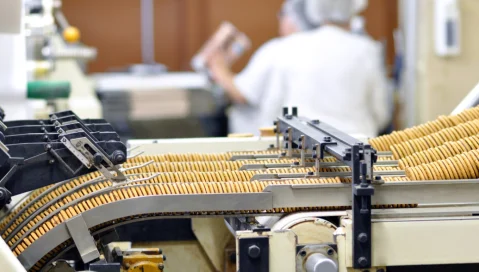Introduction
In the contract food manufacturing industry, ensuring quality control is of utmost relevance. With the enhancing need for contract food manufacturing in Australia, it is important for business to execute ideal practices as well as adhere to stringent standards. This short article will delve into the numerous aspects of attaining quality control in agreement food manufacturing, highlighting the crucial techniques as well as criteria adhered to in Australia.
The Value of Contract Food Manufacturing in Australia
Contract food manufacturing plays an essential function in the Australian food market. It enables firms to outsource their food manufacturing to specialized manufacturers, enabling them to focus on other aspects of their organization such as marketing as well as distribution. Contract food manufacturing likewise provides adaptability to organizations by permitting them to scale up or down their manufacturing based upon market demands.
Contract Food Production: A Growing Pattern in Brisbane
Brisbane, being a significant city in Australia, has actually witnessed a substantial growth in contract food manufacturing. This trend can be attributed to the raising variety of organizations selecting outsourcing their food manufacturing requirements. Contract GMP certification in food food manufacturing in Brisbane offers several advantages such as expense financial savings, access to specialized tools and competence, and also compliance with stringent top quality standards.
Best Practices for Contract Food Manufacturing
To accomplish quality control in agreement food production, it is vital to comply with best practices that guarantee uniformity, security, and effectiveness. Some of these finest methods include:
GMP (Good Production Practices) Compliance: Complying with GMP standards assists preserve top quality standards throughout the production process. This consists of appropriate training of staff, preserving cleanliness and health, as well as implementing durable quality control measures.
Food Security Management Systems: Applying a thorough Food Safety and security Management System (FSMS) is critical for guaranteeing the security of foodstuff. This includes normal inspections, threat analysis, as well as implementation of preventative measures.
Quality Control Testing: Regular screening of resources, in-process samples, and also ended up items is vital to determine any type of deviations from top quality standards. This includes screening for microbial contamination, chemical structure, and also sensory attributes.

Traceability and also Documentation: Keeping exact records of all production procedures, active ingredients used, and also packaging materials assists guarantee traceability and also responsibility. This documentation also aids in identifying and also resolving any type of quality issues that may arise.
Supplier Qualification: Conducting comprehensive evaluations of suppliers guarantees that they meet the needed quality requirements. This includes examining their production procedures, certifications, as well as record in delivering high-quality products.
Continuous Improvement: Frequently reviewing and also upgrading processes based upon feedback and sector developments is essential for achieving constant renovation in contract food manufacturing. This involves tracking crucial efficiency indicators (KPIs) as well as carrying out rehabilitative actions when necessary.
Standards in Australian Contract Food Manufacturing
Australia has stringent requirements and policies in position to guarantee the safety and also high quality of contract food manufacturing. Some of the crucial requirements consist of:
Food Standards Code: The Food Standards Code lays out the needs for food manufacturing, labeling, and also dealing with in Australia. It covers locations such as food security, ingredients, labeling demands, as well as dietary information.
HACCP (Danger Analysis Vital Control Point) : HACCP is a methodical technique to recognizing potential risks in the manufacturing procedure and implementing control actions to stop them. It is an extensively recognized requirement for making certain food safety.
ISO 22000: ISO 22000 is a global standard that specifies the demands for a Food Security Administration System (FSMS). Abiding by this standard aids organizations show their dedication to food safety.

SQF (Safe Top Quality Food) Certification: SQF certification makes sure that a business's food safety administration system satisfies global criteria. It provides assurance to clients that the items they receive are safe and of high quality.
AIB International Certification: AIB International qualification concentrates on the baking market as well as ensures that suppliers fulfill certain food safety and security as well as high quality needs. This accreditation is extremely related to in the contract food manufacturing sector.
FAQs about Quality Control in Contract Food Production
What are the benefits of contracting out contract food manufacturing? Outsourcing contract food manufacturing enables business to concentrate on core expertises, decrease expenses, gain access to customized expertise, as well as rise production flexibility.
How can I ensure that a contract food producer meets my high quality standards? It is very important to conduct complete due persistance prior to selecting an agreement food producer. This includes examining their accreditations, track record, quality control procedures, as well as consumer feedback.

What actions can be taken to stop cross-contamination in contract food manufacturing? Appropriate segregation of production locations, devoted devices for irritant handling, and also carrying out strict cleaning procedures are some measures that can help prevent cross-contamination.
What duty does packaging play in ensuring quality assurance in agreement food production? Product packaging plays an important role in protecting the quality and security of food products. It ought to be developed to secure versus contamination, keep item freshness, and provide required information to consumers.
How frequently must testing be conducted in contract food manufacturing? Testing frequency depends upon different factors such as the kind of item, service life, and regulatory demands. It is suggested to have a durable testing strategy that covers raw materials, in-process examples, and completed products.
What are some typical challenges encountered in accomplishing quality control in agreement food production? Typical difficulties include preserving consistency across several production sites, guaranteeing compliance with transforming laws, managing supply chain threats, and also addressing customer-specific requirements.
Conclusion
Achieving quality control in agreement food production is essential for services operating in the Australian market. By adhering to best techniques and sticking to stringent criteria such as GMP conformity, executing food security administration systems, and also performing normal quality assurance screening, firms can guarantee the safety and security as well as high quality of their items. It is likewise essential to select contract food makers that meet the needed certifications as well as have a record of delivering premium products. By focusing on quality control, services can build trust with customers as well as establish a solid existence in the competitive food industry.